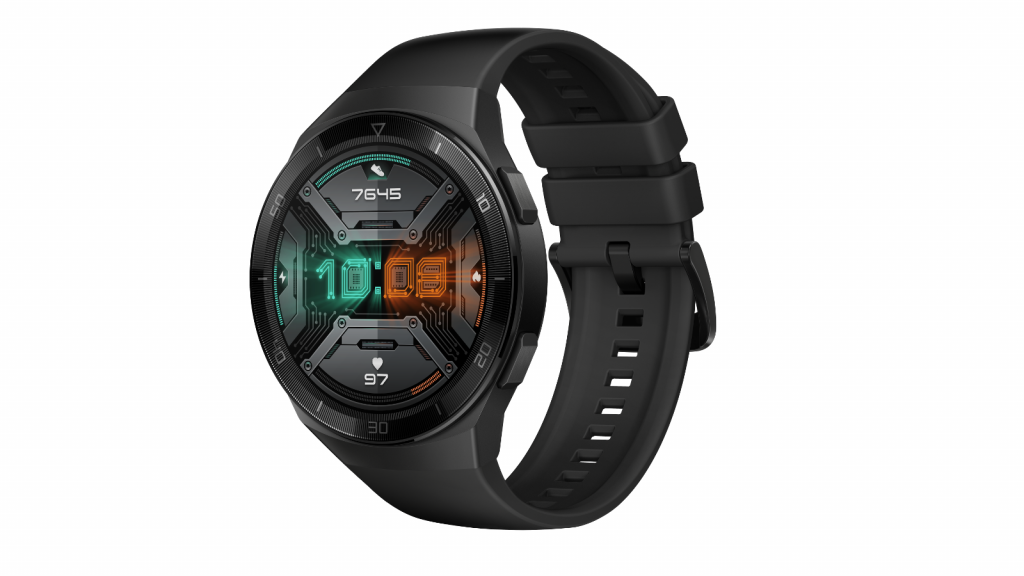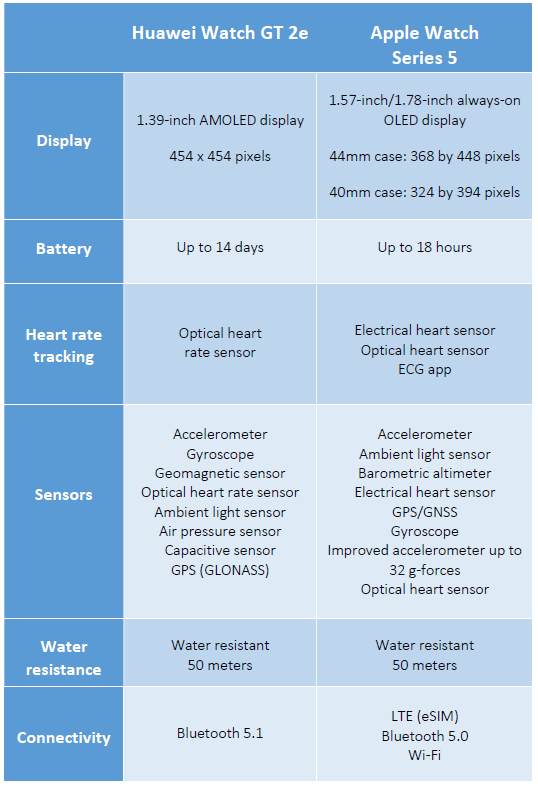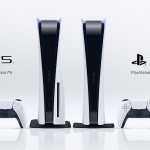Sony launches the WF-1000XM6 in South Africa with upgraded noise cancelling, better call clarity and premium sound. Pricing starts at R7,999.
Huawei Watch GT 2e vs Apple Watch Series 5: Smartwatches compared [Sponsored]

The smartwatch market in 2020 continues to offer a variety of options for consumers. One of the new entries is the Huawei Watch GT 2e, launched in July.
But how does it stack up to its competition?
We take a look at its features and specs compared to the Apple Watch Series 5.
Huawei Watch GT 2e vs Apple Watch Series 5: design
The most immediately noticeable difference between the Watch GT 2e and the Watch Series 5 is their design.
The Watch GT 2e has a rounded display surrounded by a round black bezel and a black or silver stainless steel frame. Its watch case measures 53 by 46.8mm, making it the larger of the two smartwatches.
In South Africa, Huawei’s watch comes with the Mint Green and Graphite Black plastic strap options.
Meanwhile, the Apple Watch Series 5 goes with the characteristic rounded rectangle design for its display. The watch comes in either a 40mm or 44mm case.
With the Watch Series 5, you can buy additional straps to swap out. Both plastic and fabric watch bands are available in multiple colours.
Exercise modes and other features
Both smartwatches feature exercise tracking and health tracking metrics.
Huawei’s smartwatch focuses heavily on providing a range of workout modes, with 100 workout modes for both indoor and outdoor activities. This variety aims to cover all the different activities people could be doing during lockdown, when traditional gym workouts aren’t available.
The GT 2e can also track your workout recovery time and your training load. It also looks at your overall fitness progress, your VO2Max levels during certain workouts, as well as your aerobic and anaerobic workout effect.
The GT 2e also tracks your stress and sleep during the day. Meanwhile, it also features SPO2 tracking — a feature introduced to Huawei’s smartwatches during the pandemic due to COVID-19’s effect on blood oxygen levels.
The Apple Watch Series 5 also offers different workout modes, such as yoga, cycling, swimming, hiking, climbing, and HIIT. The smartwatch lets you set goals for your workouts.
The Watch Series 5 also has two modes specifically for wheelchair users.
In terms of health metrics, the Watch Series 5 has fall detection, ECG monitoring for the heart, and an activity ring looking at exercise, movement, and standing goals during the day.
Connectivity
Another major difference between the Watch GT 2e and Watch Series 5 are their connectivity types.
Huawei’s smartwatch uses Bluetooth to connect to your phone and relies on your phone’s internet connection. This means you can see messages, incoming calls, and other notifications from your watch.
It also has GPS so that it can keep track of your movement even when you aren’t near your phone.
Meanwhile, the Watch Series 5 has eSim functionality (which requires a contract with a mobile provider). This means that if you have an eSim, the Watch Series 5can connect to an internet network by itself, without relying on the phone.
There is also a GPS+ version of the Watch Series 5 now available in South Africa.
Huawei Watch GT 2e vs Apple Watch Series 5: battery life
The Huawei Watch GT 2e has a 455mAh battery which lasts up to two weeks with typical use.
Meanwhile, the Apple Watch Series 5 has a 296mAh battery which lasts up to 18 hours.
Smartwatch compatibility
The Watch GT 2e is compatible with Android smartphones with version 4.4 or later, as well as iOS smartphones with version 9.0 later.
The Watch Series 5 is only compatible with iPhones. Specifically, it is compatible with the iPhone 11, iPhone 11 Pro, iPhone 11 Pro Max, iPhone 6s, iPhone 6s Plus, iPhone 7, iPhone 7 Plus, iPhone 8, iPhone 8 Plus, iPhone SE, iPhone X, iPhone Xs, iPhone Xs Max, and iPhone XR.
To see a summary of differences between the smartwatches, check out the table below:

You can read more about the experience using the Watch GT 2e in our review of the smartwatch.
This article is sponsored by Huawei.

